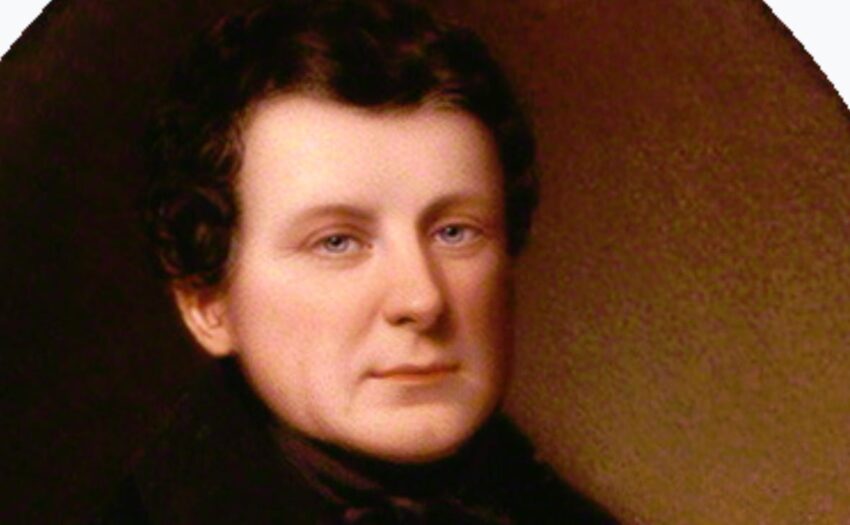Yesterday was the anniversary of the 1775 birthday of Irish Catholic leader Daniel O’Connell, “the Liberator.”
O’Connell was not always right, but he was undoubtedly a great man, a man who spent his entire life standing up to the tyrannical British occupiers. “No man was ever a good soldier but the man who goes into the battle determined to conquer, or not to come back from the battlefield,” he said. “No other principle makes a good soldier.”
Daniel O’Connell was always determined to conquer, and so he did indeed achieve great things, even if he did not succeed in wholly freeing Ireland from oppressive British control. His opposition to the Act of Union, his role in Catholic Emancipation, his historic election to Parliament that led to the Roman Catholic Relief Act, all shaped O’Connell’s legacy.
‘[Irish Central] He is predominately remembered for his role in securing Catholic Emancipation in 1829, a series of reforms that removed restrictions on Roman Catholics living in the British Empire…The Catholic Association proved extremely popular, and O’Connell was able to attract crowds of over 100,000 people at his rallies…
O’Connell became the first Catholic to win a seat in the British Parliament in more than 100 years…O’Connell’s election led to the passage of the Roman Catholic Relief Act in 1829, which allowed Catholics to take their seats in Parliament whilst also removing the remaining Penal Laws and Test Acts that had kept Irish Catholics beaten down…
Historians argue that the passage of the Roman Catholic Relief Act was a seismic moment in the relationship between Britain and Ireland, undermining notions of the protestant ascendancy and shattering a whole social order.’
He also opposed the Act of Union, as I noted above. This act had created the “United Kingdom of Great Britain and Ireland,” but O’Connell understandably wanted the Kingdom of Ireland with its separate, Dublin-based parliament restored instead.
‘His campaigning laid the groundwork for the Home Rule compromise of the 1880s and he addressed as many as one million followers at Clontarf and Tara in 1843 in his campaign for a Dublin-based legislature.
He was arrested and sentenced to 12 months in jail for conspiracy but was released three months later on appeal. He was paraded through Dublin on a gilded throne after his release, but his influence in the repeal movement diminished thereafter as he approached the final years of his life.’
O’Connell is also called Ireland’s “Great Emancipator,” and like the American Great Emancipator Lincoln, he was strongly opposed to slavery. Former slave, orator, and abolitionist Frederick Douglass was greatly inspired in 1845 during a trip to Ireland by meeting O’Connell and hearing him speak, especially since the Irish politician minced no words in condemning American slavery.
Douglass quoted O’Connell: “I am the advocate of civil and religious liberty, all over the globe, and wherever tyranny exists, I am the foe of the tyrant; wherever oppression shows itself, I am the foe of the oppressor; wherever slavery rears its head, I am the enemy of the system, or the institution, call it by what name you will.” The Irishman’s words electrified the former slave in the audience.
“The fire of freedom was burning in his mighty heart,” Douglass praised O’Connell. “I have heard many speakers within the last four years—speakers of the first order; but I confess, I have never heard one, by whom I was more completely captivated than by Mr. O’Connell.” He added:
“I used to wonder how such monster meetings as those of Repeal could be held peaceably. It is now no matter of astonishment at all. It seems to me that the voice of O’Connell is enough to calm the most violent passion, even though it were already manifesting itself in a mob. There is a sweet persuasiveness in it, beyond any voice I ever heard. His power over an audience is perfect.”
There were countless Irishmen who would have agreed with the American visitor’s assessment, and still today O’Connell is held up as a hero of Ireland. O’Connell always went into battle determined to conquer, and wherever tyranny existed, he showed himself the foe of the tyrant. It is no wonder that the Irish people remember O’Connell as the “Great Emancipator,” the man who gave them hope and heroism in a dark period of oppression and religious persecution.
This article was originally published last year.
Click this link for the original source of this article.
Author: Catherine Salgado
This content is courtesy of, and owned and copyrighted by, https://catherinesalgado.substack.com and its author. This content is made available by use of the public RSS feed offered by the host site and is used for educational purposes only. If you are the author or represent the host site and would like this content removed now and in the future, please contact USSANews.com using the email address in the Contact page found in the website menu.









